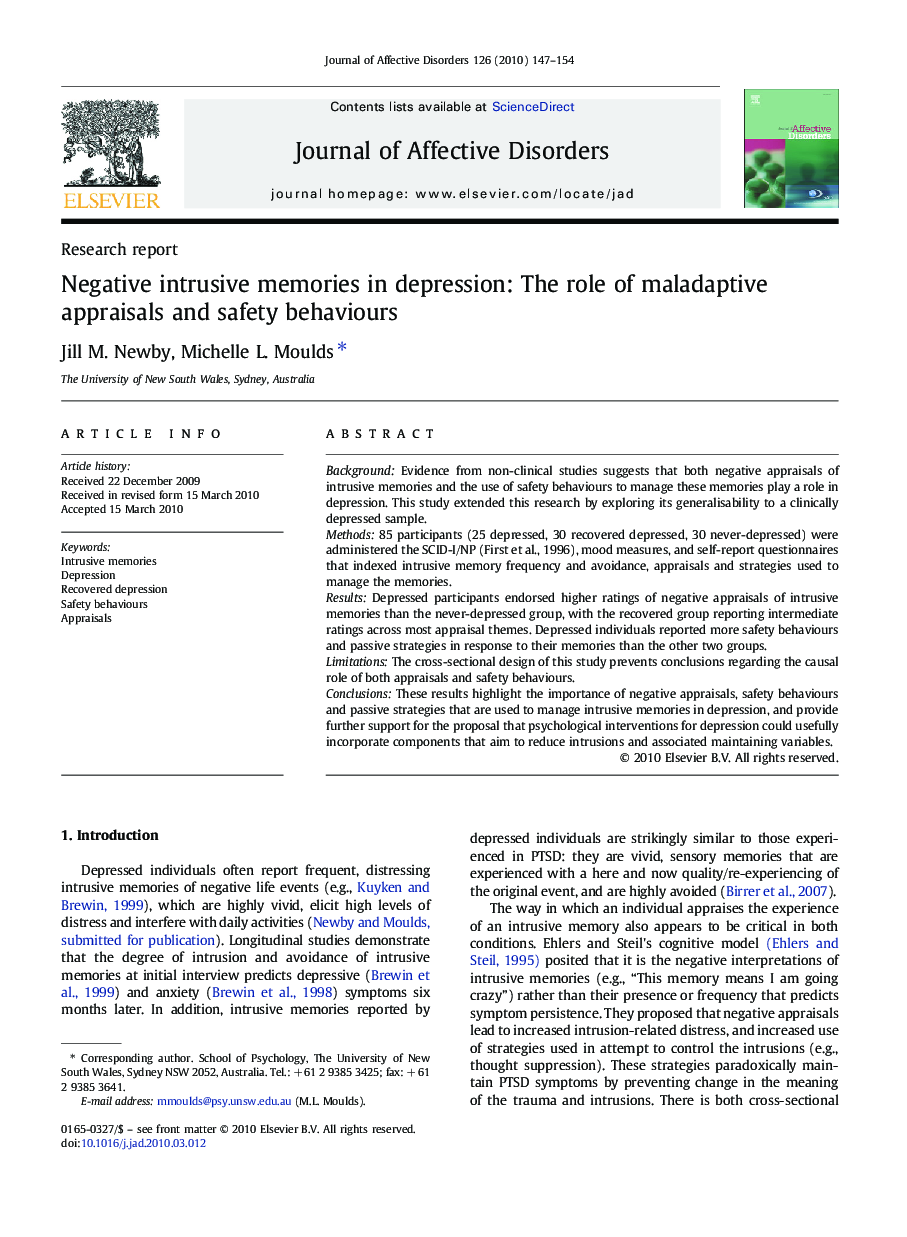| Article ID | Journal | Published Year | Pages | File Type |
|---|---|---|---|---|
| 4186775 | Journal of Affective Disorders | 2010 | 8 Pages |
BackgroundEvidence from non-clinical studies suggests that both negative appraisals of intrusive memories and the use of safety behaviours to manage these memories play a role in depression. This study extended this research by exploring its generalisability to a clinically depressed sample.Methods85 participants (25 depressed, 30 recovered depressed, 30 never-depressed) were administered the SCID-I/NP (First et al., 1996), mood measures, and self-report questionnaires that indexed intrusive memory frequency and avoidance, appraisals and strategies used to manage the memories.ResultsDepressed participants endorsed higher ratings of negative appraisals of intrusive memories than the never-depressed group, with the recovered group reporting intermediate ratings across most appraisal themes. Depressed individuals reported more safety behaviours and passive strategies in response to their memories than the other two groups.LimitationsThe cross-sectional design of this study prevents conclusions regarding the causal role of both appraisals and safety behaviours.ConclusionsThese results highlight the importance of negative appraisals, safety behaviours and passive strategies that are used to manage intrusive memories in depression, and provide further support for the proposal that psychological interventions for depression could usefully incorporate components that aim to reduce intrusions and associated maintaining variables.
